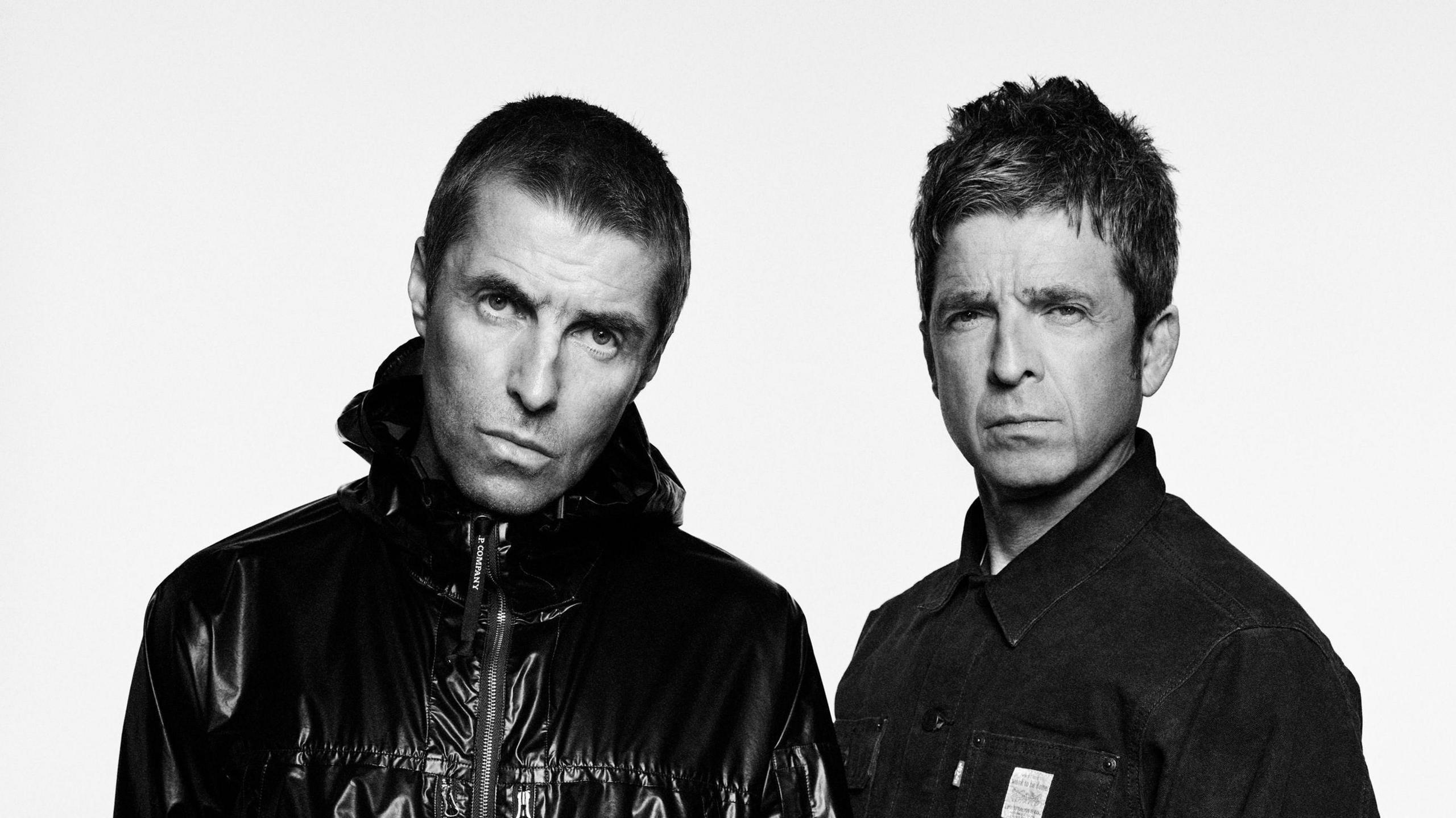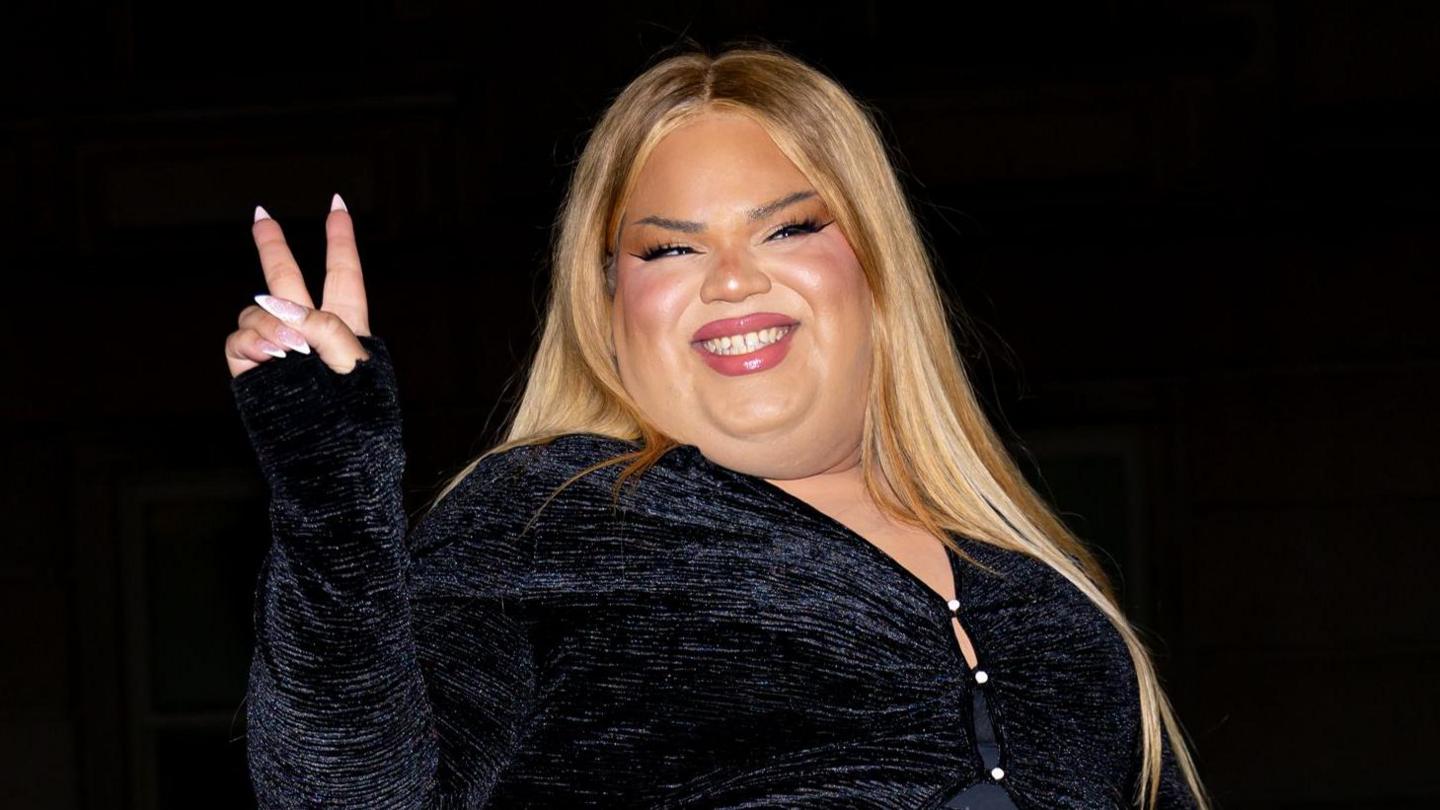What should be the Oxford Word of 2024?

The Gallagher brothers came under fire earlier this year after Ticketmaster used "dynamic pricing" when selling tickets to the Oasis reunion tour
- Published
What word best encapsulates the year 2024?
Oxford University Press has whittled the answer down to six candidates.
This year's shortlist for the Oxford Word of 2024 includes references to ticketing scandals, TikTok trends and fiction-book genres.
The shortlisted words will now be put to the public, before the winner is announced on 2 December.
What are the candidates?
Lore: A body of (supposed) facts, background information, and anecdotes relating to someone or something
Brain rot: Supposed deterioration of a person's mental or intellectual state, especially viewed as the result of overconsumption of material considered to be trivial or unchallenging
Dynamic pricing: The practice of varying the price for a product or service to reflect changing market conditions
Demure: Of a person: reserved or restrained in appearance or behaviour. Of clothing: not showy, ostentatious, or overly revealing.
Slop: Art, writing, or other content generated using artificial intelligence, shared and distributed online in an indiscriminate or intrusive way, and characterized as being of low quality, inauthentic, or inaccurate
Romantasy: A genre of fiction combining elements of romantic fiction and fantasy, typically featuring themes of magic, the supernatural, or adventure alongside a central romantic storyline.
How are they selected?
Casper Grathwol, president of Oxford Languages, said the 2024 shortlist reflected a "snapshot of the topics that have caught our interest and imagination and kept us talking".
"The words we choose reflect who we are and remind us of the power that language holds to shape the world around us,” he said.
He added that what was "particularly unique" about this year's selection was the "range of words associated with bygone eras that have slid back into public consciousness".

American influencer Jools Lebron started the "very demure, very mindful" trend on TikTok
This is in direct reference to the words demure and lore - which have entered back into the public consciousness thanks to their resurgence on social media platforms.
Other words on the shortlist can be associated with particular events from the past 12 months.
That is certainly the case for the dance that is dynamic pricing - which came to the fore in the summer when Ticketmaster adopted the method for the long-awaited Oasis reunion tour.
What makes a word of the year?
Words including chav, selfie and sudoku have won the prize, with rizz claiming the award in 2023.
Fiona McPherson, a senior editor in the New Words team of the Oxford English Dictionary, previously told the BBC that selecting the award involved looking for something that "somehow encapsulates something about that year".
"It's hard to get something that will speak to everyone's experience," she said.

Fiona McPherson said Word of the Year is "like a time capsule"
This year marks the awards' 20th anniversary, with Ms McPherson saying the past two decades of winners were "like a time capsule".
Vax was chosen at the height of the Covid-19 vaccine roll-out in 2021, post-truth was the winner in 2016 - to coincide with Donald Trump's US election victory - and 2015 saw the crying-with-laughter emoji become the only symbol to take home the prize.
When asked what her favourite winner from the past 20 years was, Ms McPherson said it "had to be selfie", which won in 2013.
"That really sticks in my mind because it's possibly the only time that everybody was in complete agreement that 'it has to be this'," she added.
Get in touch
Do you have a story BBC Oxfordshire should cover?
You can follow BBC Oxfordshire on Facebook, external, X (Twitter), external, or Instagram, external.
- Published23 October 2024

- Published4 December 2023
